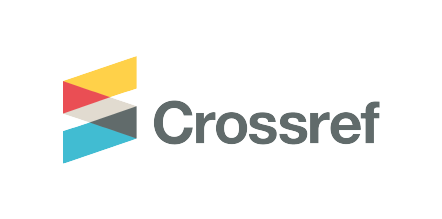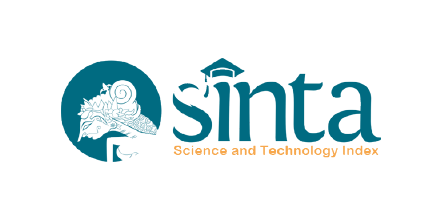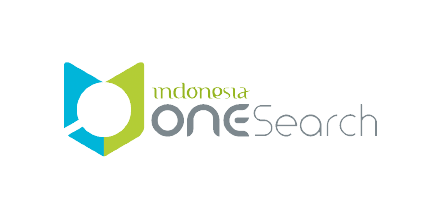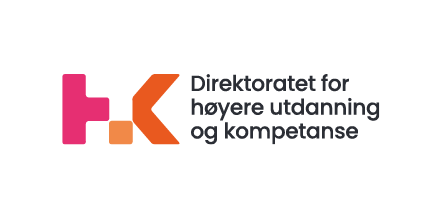Teachers' Demographic Factors Influencing Their Attitudes Towards Education of Students with Learning Disabilities in Regular Classrooms in Ibadan, Nigeria
DOI:
https://doi.org/10.21776/ub.ijds.2020.007.02.08Keywords:
Demographic factors, Attitude, Education of students with learning disabilities, Regular classroomsAbstract
The study investigated the level of attitudes towards the education of students with learning disabilities among teachers in regular education classrooms. It also examined the influence of four teachers' demographic factors on their attitudes towards education of students with learning disabilities in regular classrooms Ibadan, Nigeria. The descriptive research design was adopted for the study whilst the multi-stage sampling procedure was adopted to select the study sample. A total of 125 teachers participated in the study, 64 (51.2%) were males whilst 61 (48.8%) were females. A self-designed questionnaire tagged Teachers' Attitude towards Education of Students with Learning Disabilities in Regular Education Classrooms (TAESLDRECQ) with a reliability of 0. 81 was utilized to collect data. One research question and four hypotheses were generated and tested. Percentage, mean, standard deviation, t-test and Analysis of variance (ANOVA) statistics were employed to analyze the data generated from the participants at 0.05 level of significance. Whilst the result of the research question reveals a grand mean of 2.59 which is slightly higher than the criterion mean of 2.50, the result from the test of norm showed that 9.6% (n=12) teachers had negative attitude, whilst 90.4% (n=113) teachers had positive attitude. Therefore, it was concluded that there is a positive attitude towards education of students with learning disabilities in regular education classrooms. The results shows that teachers' attitudes towards education of students with learning disabilities in regular education classrooms based on: gender (Crit-t = 1.96, Cal.t = 1.440, DF = 123; educational qualification (F = 1.630, p(.171)>.05); years of experience (F = 2.329, p(.102)>.05); and category of students taught which could be either junior secondary or senior secondary class (Crit-t = 1.96, Cal.t = .035, DF = 123, p(0.973) towards education of students with learning disabilities in regular education classrooms. Hence, it was concluded that teachers' attitude towards education of students with learning disabilities is the same irrespective of their gender, educational qualification, years of experience and category of student taught (either junior secondary or senior secondary class). On the basis of these findings, it was recommended that there should be more trainings and in-service professional development programmes such as orientation, workshops, seminars, conferences to allow teachers in regular education classrooms to acquire knowledge, skills and values required for the adequate education of students with learning disabilities in their classrooms.
References
Agbenyega, J. (2007). Examining teachers' concerns and attitudes to inclusive education in Ghana. International Journal of Whole Schooling, 3(1): 41-56.
Alvarez Mcatton, A., & McCray, E. (2007). Inclination toward inclusion: Perceptions of elementary and secondary education teacher candidates. Action in Teacher Education, 29(3), 25-32. doi:1080/01626620.2007.10463457.
Avramidis, E., Norwich, B. (2002). Teachers' attitudes towards integration/inclusion: a review of the literature. European Journal of Special Needs Education, 17(2), 129-147.
Bradshaw, L., & Mundia, L. (2006). Attitudes and concerns about inclusive education: Bruneian in service and pre-service teachers. International Journal of Special Education, 21(1), 35-41.
Cambridge-Johnson, J., Hunter-Johnson, Y., & Newton, N. (2014). Breaking the silence of mainstream teachers' attitude towards inclusive education in the Bahamas: High school teachers' perceptions. The Qualitative Report, 19(84), 1-20. Retrieved from: http://www/nova.edu/ssss/QR/QR19/cambridgejohnsons84.pdf.
Chiner, E., & Cardona, M. C. (2013). Inclusive education in Spain: How do skills, resources, and supports affect regular education teachers' perceptions of inclusion? International Journal of Inclusive Education, 17(5), 526-541. doi:10.1080/13603116.2012.689864.
Cornoldi, C., Capodieci, A., Diago, C. C., Miranda, A., & Shepherd, K. G. (2018). Attitudes of primary school teachers in three western countries toward learning disabilities. Journal of Learning Disabilities, 51(1), 43-54. DOI: 10.1177/0022219416678408 .
Dapudong, R. C. (2013). Knowledge and attitude towards inclusive education of children with learning disabilities: The case of Thai primary school teachers. Academic Research International, 4(4), 496-512. Retrieved from
http://www.savap.org.pk/journals/ARInt./Vol.4(4)/2013(4.4-53).pdf.
de Boer A., Pijl, S. J., & Minnaert, A. (2011). Regular primary school teachers' attitudes towards inclusive education: A review of the literature. International Journal of Inclusive Education, 15(3), 331-353.
Dukmak, S. J. (2013). Regular classroom teachers' attitudes towards including students with disabilities in the regular classroom in the United Arab Emirates. The Journal of Human Resource and adult Learning, 9(1), 26-39.
Ehsaan, F., Khan, M. & Gulzar, S. (2018). Factors influencing the teacher's attitude and concern towards inclusive education of special education. Paper presented at the International Conference on Research in Special Education, at the University of Punjab, Lahore, Pakistan in April 2018. Retrieved from https://www.researchgate.net/publication/325857779.
Ellins, J. & Porter, J. (2005). Departmental differences in attitudes to special educational needs in the secondary school. British Journal of special Education, 32(4), 188-195.
Fakolade, O. A., Adeniyi, S.. O., & Tella, A. (2009). Attitude of teachers towards the inclusion of special needs children in general education classroom: The case of teachers in some selected schools in Nigeria. International Electronic Journal of Elementary Education, 1(3), 155-169.
Galaterou, J., & Antoniou, A. (2017). Teachers' attitudes towards inclusive education: The role of job stressors and demographic parameters. International Journal of Special Education, 32(4), 643-658.
Lazarus, K. U., & Ntamark, E. K. (2016). Self-concept and attitude towards reading as correlatesn of achievement in reading comprehension among students with learning disabilities in Ibadan, Nigeria, African Journal of Educational Research, 20(1&2), 54-64.
Lerner, J. W., & Kline, F. (2006). Learning disabilities and related disorders: Characteristics and teaching strategies. (10th ed.). Boston, New York: Houghton Mifflin Company.
Lika, R. (2016). Teacher's attitude towards inclusion of students with disabilities in regular schools. CBU International Conference on Innovations in Science and Education, Prague, Czech Republic. Retrieved from www.journals.cz
Offor, D. I. & Akinlosotu, N. T. (2017). Teachers' attitude towards special need students in secondary schools in North Senatorial District of Edo State, Nigeria. Journal of Education and Practice, 8(4), 6-12.
Saloviita, T. (2020). Attitudes of teachers towards inclusive education in Finland, Scandinavian Journal of Educational Research, 64(2), 270-282, DOI: 10.1080/00313831.2018.1541819.
Shady, S. A., Luther, V. L., & Richman, L. J. (2013). Teaching the teachers: A study of perceived professional development needs of educators to enhance positive attitudes toward inclusive practices. Education Research and Perspectives (Online), 40, 169. Retrieved from http://www.erpjournal.net.
Sharma, U., & Chow, E. (2008). The attitudes of Hong Kong Primary school principals toward integrated Education. Asia Pacific Education Review, 9(3), 380-391. Retrieved from: http://files.eric.ed.gov/fulltext/EJ835209.pdf.
Thaver, T., Lim, L., & Liau, A. (2014). Teacher variables as predictors of Singaporean pre-service teachers' attitudes toward inclusive education. European Journal of Research on Social Studies, 1, 1-8. Retrieved from: http://iassr.org/rs/E010101.pdf.
United States Department of Education, Office of Special Education Programmes (2006). Identification of specific learning disabilities. Retrieved from http://idea.ed.gov/explore/view/p/root,dynamic, TopicalBrief, 23.
Vaz, S., Wilson, N., Falkmer, M., Sim, A., Scott, M., Cordier, R. et al. (2015). Factors associated with primary school teachers' attitudes towards the inclusion of students with disabilities. PLoS ONE 10(8), e0137002. https://doi.org/10.1371/journal.pone.0137002.
Downloads
Published
How to Cite
Issue
Section
License
Copyright (c) 2020 Kelechi Uchemadu Lazarus

This work is licensed under a Creative Commons Attribution-NonCommercial 4.0 International License.















